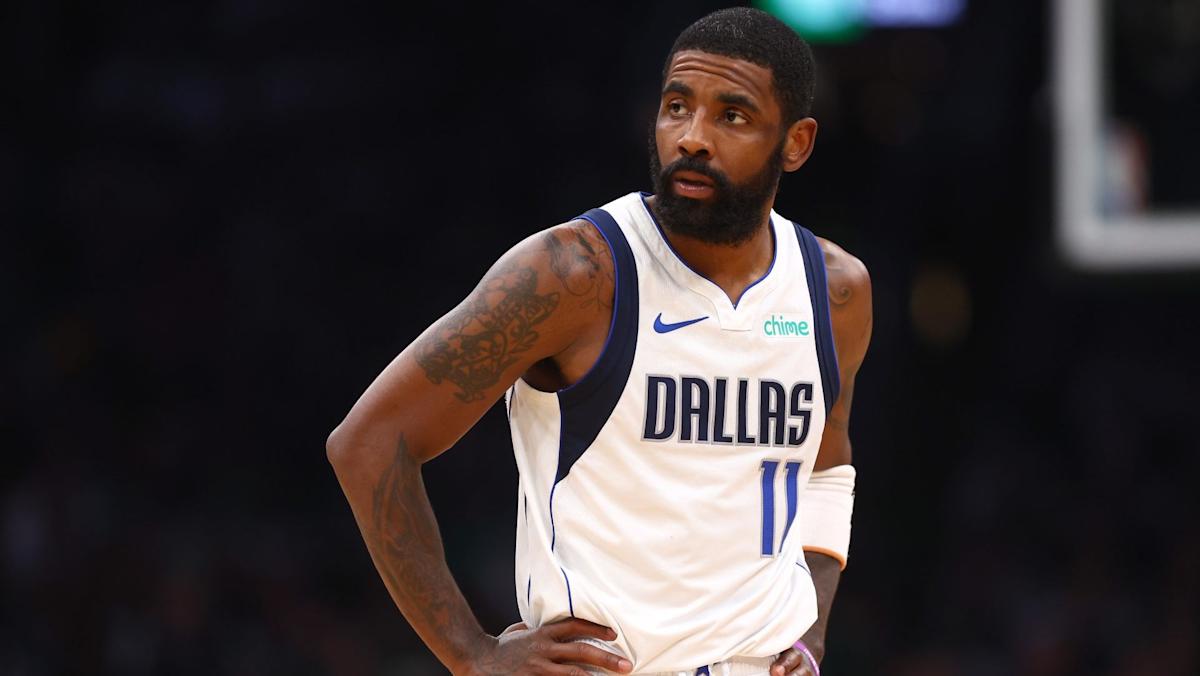In the modern arena of professional sports, few details remain truly private. The instant a star athlete inks a new deal, the figures – the millions, the duration, the per-year breakdown – are splashed across social media, analyzed on sports talk shows, and dissected by a global fanbase. This pervasive transparency, once a niche interest, has become as integral to the fan experience as the game itself. Yet, for some athletes, this public financial scrutiny is not merely a curious byproduct of their profession; it`s a profound intrusion, a sentiment recently voiced by Dallas Mavericks superstar Kyrie Irving.
The Irresistible Allure of the Numbers Game
For decades, the business of sports was largely opaque to the average fan. Contract details were whispers, speculative figures discussed only among the most dedicated insiders. However, the dawn of the internet age and the subsequent explosion of sports analytics and dedicated financial platforms have utterly transformed this landscape. Today, websites meticulously track every dollar of every NBA contract, and fans, remarkably, have become fluent in the intricate nuances of salary caps, luxury taxes, and trade exceptions.
This collective financial literacy is, in many ways, a testament to the sport`s evolution. Knowing how much a player earns adds a fascinating layer to team building and competitive strategy. It transforms roster construction into a complex puzzle, inviting fans to become armchair general managers. The sheer “sexiness” of record-breaking deals or the strategic brilliance of a “bargain” contract fuels endless discussion and deepens engagement. Indeed, for many, understanding the financial architecture of a team is as compelling as dissecting a tactical play.
Kyrie Irving`s Candid Revelation: When Transparency Becomes a Target
While the public appetite for financial transparency in sports is undeniable, Kyrie Irving’s recent remarks on his Twitch livestream peel back the curtain on the less glamorous side of this phenomenon. Irving articulated a sentiment that likely resonates with many high-profile athletes: the discomfort and potential peril of having one`s precise earnings laid bare for the world to see.
As Irving noted, while public companies disclose CEO salaries, the level of granular detail and the subsequent public dissection of an athlete`s contract are often unparalleled. “I wonder if people know how much that puts a target on someone`s life,” he mused. This isn`t merely about feeling awkward when a distant acquaintance knows your exact net worth; it touches upon more serious concerns, including personal security and the relentless pressure of public expectation.
When an athlete underperforms, their contract instantly becomes a weapon in the arsenal of criticism. A lavish sum, once celebrated as a testament to their talent, morphs into a symbol of perceived overpayment and underachievement. Conversely, exceeding expectations on a modest deal is lauded as a “steal,” a narrative that, while positive, still anchors a player`s worth solely to their financial agreement rather than their inherent skill or dedication.
“When people know what you make and then ask somebody like, `Hey I saw that you got this negotiating your contract, how did you get it done?` It`s like, bro, that`s personal. That`s very personal.” – Kyrie Irving
Irving`s point highlights a critical distinction: the difference between public interest and personal intrusion. While a certain degree of public scrutiny is inherent to celebrity, the specific, widely broadcast details of one`s personal income can feel uniquely violating, even for those earning astronomical sums.
The Unofficial Leak: A Loophole in the Rules
It`s a curious paradox that while the NBA`s Collective Bargaining Agreement (CBA) technically prohibits teams, players, agents, and the league itself from publicly disclosing contract terms, the information routinely becomes public within minutes of a deal being struck. The truth is, this transparency often stems from a symbiotic, if unofficial, relationship between agents and sports reporters. Agents, seeking to showcase their client`s market value or even their own negotiating prowess, will frequently leak contract figures to the media. This process, while violating the letter of the CBA, is rarely enforced, a testament to the collective understanding that this information fuels the ecosystem of modern sports media and fan engagement.
Therefore, while players like Irving may feel the burden of public scrutiny, their representatives are often active participants in the very process that creates it. It’s a complex dance where the desire for positive publicity and leverage can inadvertently contribute to the personal discomfort some athletes experience.
The Double-Edged Sword of Financial Transparency
Ultimately, the debate sparked by Kyrie Irving underscores a fundamental tension in professional sports: the balance between fostering a vibrant, engaging fan culture and safeguarding the personal well-being and privacy of the athletes who drive it. Public salaries undeniably enhance the spectator experience, transforming every deal into a strategic chess move and every performance into a direct correlation to earning potential.
However, this transparency comes at a cost to the individuals involved. It places athletes under an almost unbearable microscope, where every missed shot or perceived misstep is weighed against the hefty sum listed on their public ledger. It raises questions about whether the gains in fan engagement outweigh the psychological burden on players, or if a more nuanced approach to financial disclosure might be beneficial.
As the NBA continues to evolve, propelled by ever-increasing revenues and unprecedented global reach, the discussion initiated by Kyrie Irving serves as a timely reminder. Perhaps it’s time to consider if the very transparency that makes the league so captivating is also, in its own way, casting an unnecessarily harsh spotlight on its most valuable assets: the players themselves.

